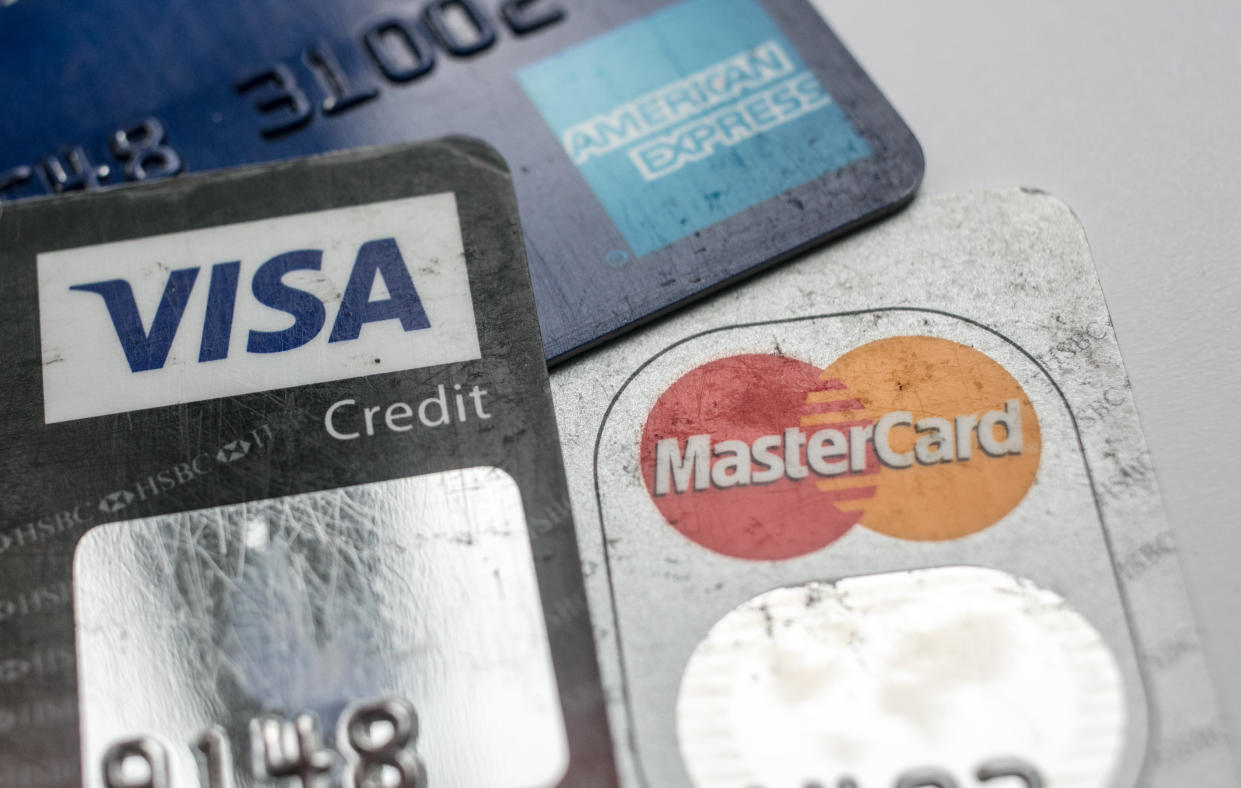Coronavirus: Calls for interest rate cap for banks

Banks should have interest rates capped in light of COVID-19, according to a raft of proposals aimed at ensuring lenders continue to go easy on customers as the economic fallout from the pandemic continues.
The Fairbanking Foundation is calling for “significant intervention by government and regulators” to limit high cost credit. The lobbying group sent proposals to the Treasury’s economic secretary John Glen last week.
Suggestions include a freeze on credit card rates at where they were on 1 May and capping overdraft interest rates at 25%. The current maximum rate on overdrafts is 40%.
Read more: Advice services get £38m amid warning of debt 'tsunami'
Banks have already granted payment holidays on loans, credit cards, and mortgages, as well as waiving fees on overdrafts during the lockdown.
However, many of those breaks are due to end in the coming weeks and months. Fairbanking wants restrictions in place after these payments holidays elapse to ensure banks don’t gouge customers to try and make back money or push Brits into unsustainable debt.
“A lot of households are going to have a drop in income,” Antony Elliott, the foundation’s founder, told Yahoo Finance UK.
“When these things occur to people, many people find it difficult to estimate how long it’s going to go on for and tend to underestimate how long it’s going to go on for, so can take short-term decisions that are really not in their interests — I’ll use all my credit cards, I’ll get a new credit card, I’ll run up the overdraft.”
Read more: Brits paid off record £7.4bn of debt in April during lockdown
Eliott pointed to a study by debt charity StepChange last year that found 98% of people who used payday loans after a “life event” ended up in problem debt or financial distress. The figure was 86% for people who turned to credit cards and overdrafts.
StepChange warned the UK was facing a debt “tsunami” in a new report on Tuesday. The charity said over four million people could be running up debts of £6bn ($7.6bn) during the current COVID-19 pandemic.
“The numbers are already large and they’re going to get larger,” Elliott said. “As soon as action occurs the better.”
The Fairbanking Foundation is also calling for tougher new caps on interest rates charged in the payday lending sector.
Read more: Fears on overdraft fees as HSBC hikes rate to 40%
Separately this week, the All Party Parliamentary Group on Fair Business Banking called for banks to extend commercial mortgage payment holidays for a further three months beyond June.
A spokesperson for UK Finance, the lobby group for the UK banking industry, said: “The banking and finance industry is working hard to help all customers through these tough times, providing an unprecedented level of support.
“For commercial customers there is wide range of flexible support available, including amendments to facilities and capital payment holidays to help business borrowers manage through the disruption.
“For personal customers the industry has put in a series of measures to help borrowers, including up to £500 interest-free overdrafts, repayment holidays for credit cards and personal loans and payment deferrals for mortgages.”


